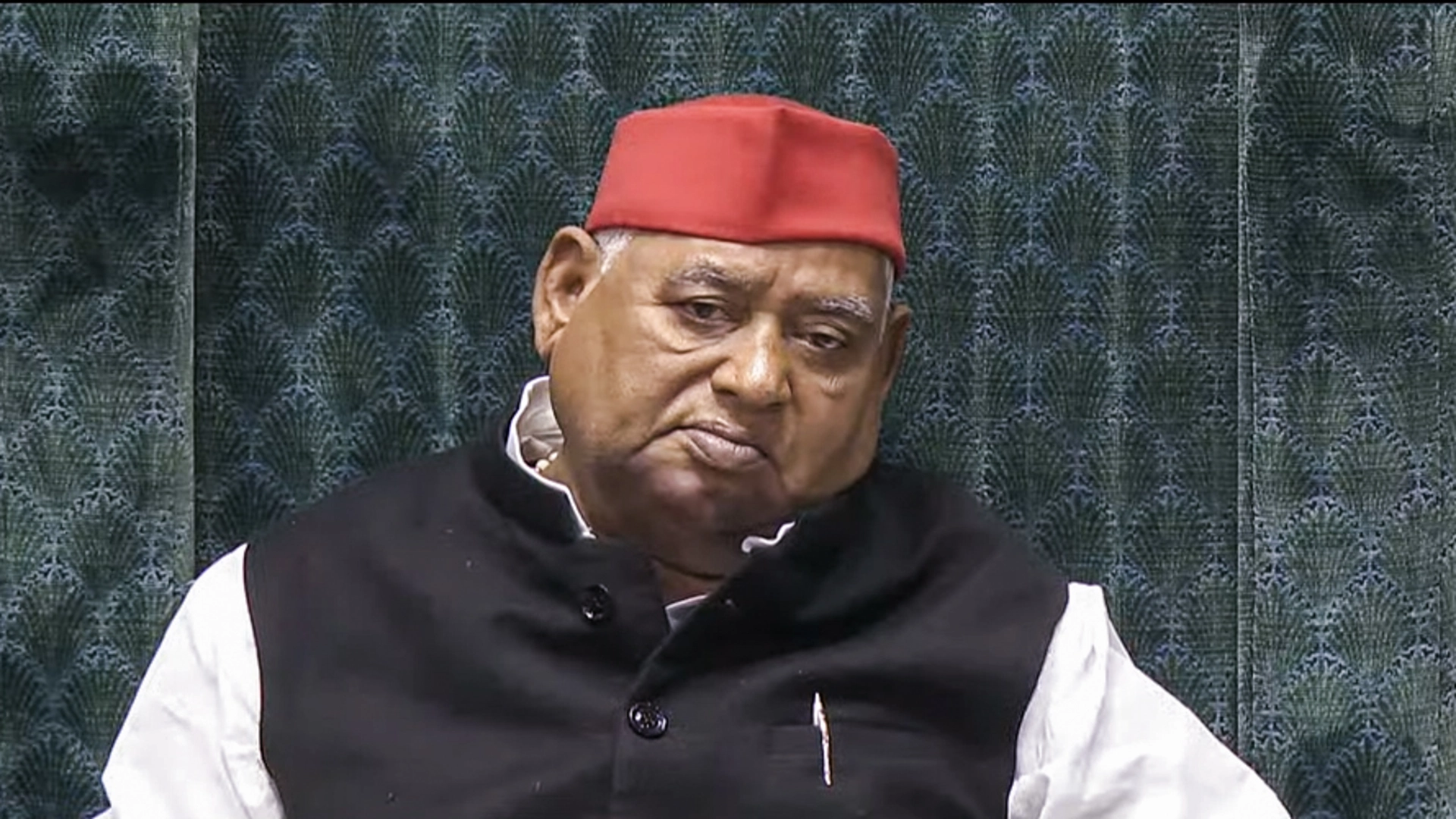Samajwadi Party (SP) leader and Faizabad MP Awadhesh Prasad expressed disappointment over not receiving an invitation to Ayodhya’s Deepotsav, an annual Diwali celebration in Ayodhya, and criticised the Bharatiya Janata Party (BJP) for what he describes as the “politicisation” of Hindu festivals. Speaking on the day of the event, Prasad said, “BJP is politicising our festivals too. I hope this will be a festival of brotherhood” and emphasised that Ayodhya’s celebrations should not be reduced to a single party’s narrative. Frustrated by the lack of communication from the administration, he stated, “This festival doesn’t belong to any one community… I have not got any pass or invitation for Deepotsav.”
Prasad’s exclusion has drawn attention due to his symbolic victory over BJP’s incumbent Lallu Singh in Faizabad, a constituency that includes Ayodhya. His election is significant because Ayodhya has been a central node of the BJP’s Hindutva-driven politics, especially with the recent inauguration of the Ram Temple. Notably, Prasad claims a deeper connection to Lord Ram, challenging BJP’s exclusivity in Ayodhya’s political and religious discourse. He stated, “No one can be a greater devotee of Ram than me… My grandfather, father, brother, and father-in-law all have Ram in their names. I am a native of Ayodhya, so who could be closer to Lord Ram than me?.”
In addition to his critique of the festival’s perceived politicization, Prasad has repeatedly drawn attention to development issues impacting Ayodhya’s residents, underscoring how ongoing infrastructure projects often disrupt local life and tradition without adequate compensation. “Many shops were demolished without compensation, and farmers’ lands are under threat from large projects,” Prasad explained, pointing to local frustrations that contributed to his electoral win. For many, he argues, Ayodhya’s development under BJP administration has benefited mainly tourists and newcomers while sidelining the concerns of long-term residents.
Ayodhya’s Deepotsav, organized by the Uttar Pradesh government, has grown into a massive celebration over the years, culminating this year with plans to light over 2.8 million diyas along the Saryu River. Prasad’s exclusion from such an event highlights the broader political tensions following his unexpected victory in Ayodhya. As a Dalit candidate, Prasad’s victory over BJP’s two-term incumbent MP Lallu Singh came after a targeted campaign by SP chief Akhilesh Yadav to consolidate Dalit, Muslim, and OBC votes. The SP’s slogan for Prasad’s campaign, “Na Mathura, na Kashi, abki baar Awadhesh Pasi” (Neither Mathura nor Kashi, this time it’s Awadhesh Pasi), emphasised his status as an outsider who could bridge Ayodhya’s communities despite BJP’s traditional dominance.
Prasad’s campaign highlighted a distinction between his version of devotion to Lord Ram and the BJP’s portrayal of Ayodhya as their political stronghold. Prasad argued, “The Supreme Court paved the way for the temple in Ayodhya and the BJP made its narrative around it ignoring the day-to-day real issues hitting the people of Ayodhya on the ground.” He added that the BJP’s focus on the Ram Temple overshadowed essential concerns like “unemployment, price rise, farmers’ distress, and the stray cattle menace,” underscoring that his victory represented the voices of those disillusioned with BJP’s development agenda.
Ayodhya’s shifting political landscape reflects a larger ideological shift in Uttar Pradesh, where SP’s strategic alignment of OBC, Dalit, and Muslim voters has posed a formidable challenge to the BJP. Prasad’s victory and his outspoken critiques of the BJP’s “saffronisation” of festivals and religious symbols underscore the broader pushback against BJP’s policies and narratives. As he remarked, “It was not me but the people of Ayodhya who have been fighting against the saffron might in Faizabad.”
Also read: Diwali Revelry: How Delhi’s Rich Gamble Big With Cars And Real Estate
Prasad’s stance, combined with his call for a more inclusive approach to Ayodhya’s religious and cultural celebrations, has introduced a new dimension to the city’s evolving political and social discourse. As the Deepotsav’s record-breaking festivities unfold, the debate surrounding Ayodhya’s identity and representation in Uttar Pradesh politics is likely to continue.







